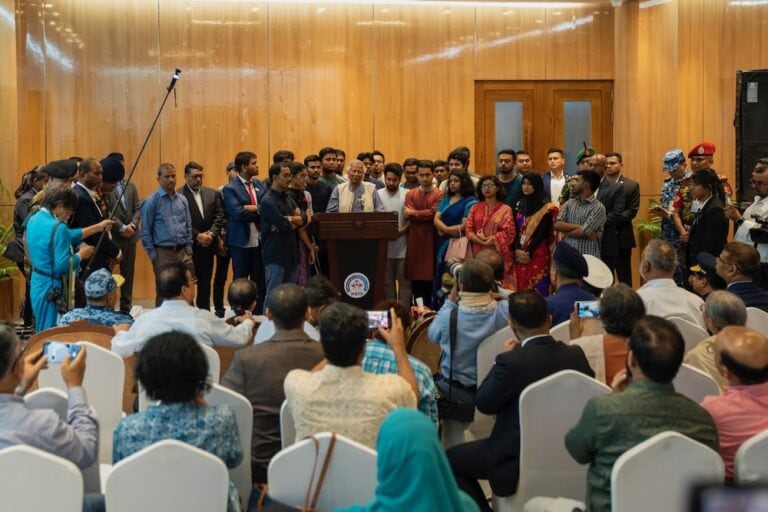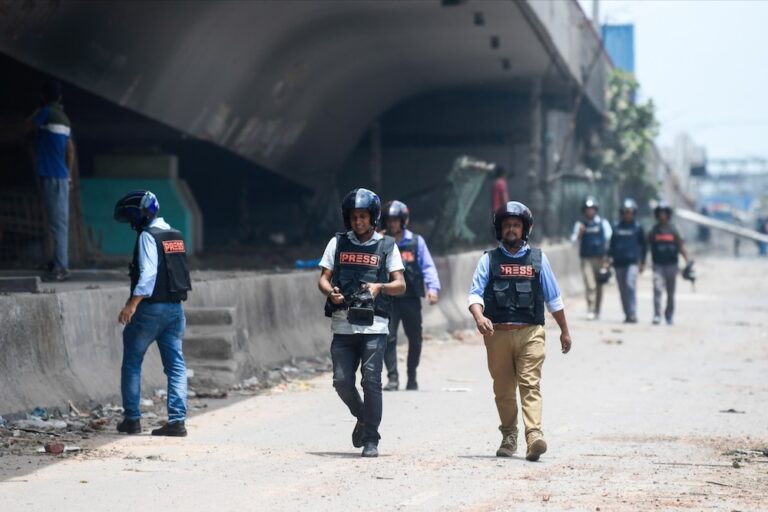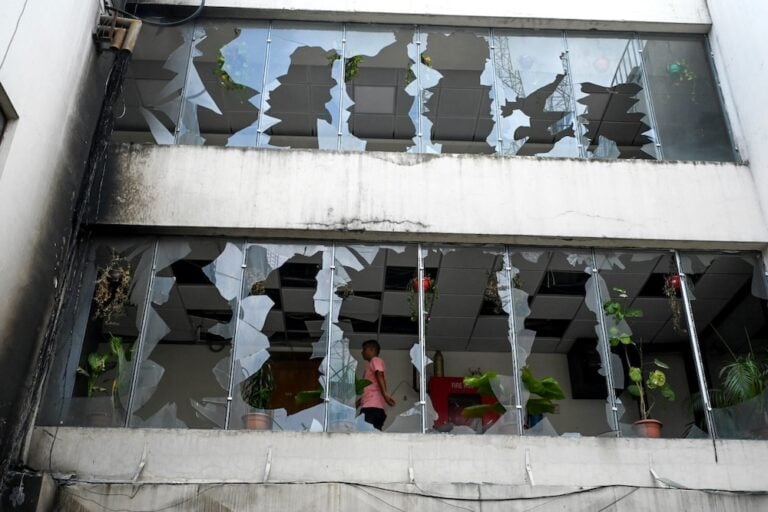(RSF/IFEX) – Manik Shaha, a correspondent for the daily “New Age” and a stringer for the Bengali service of the BBC World Service, was killed on 15 January 2004 when a home-made bomb was thrown at him in Khulna, southwestern Bangladesh. Eight journalists have been killed in this region of the country over the past […]
(RSF/IFEX) – Manik Shaha, a correspondent for the daily “New Age” and a stringer for the Bengali service of the BBC World Service, was killed on 15 January 2004 when a home-made bomb was thrown at him in Khulna, southwestern Bangladesh.
Eight journalists have been killed in this region of the country over the past seven years. Shaha is the first journalist in the world to be murdered in 2004.
Shaha died instantly after the bomb was thrown at him by unknown assailants who stopped the rickshaw in which he was travelling. After covering a meeting of the opposition Awami League, Shaha was returning home via the press club, which he presided for several years. He was decapitated by the bomb. The bombers managed to escape but several people witnessed the attack. Police were called to the scene but did not issue a statement.
RSF and the Bangladesh Centre for Development, Journalism and Communication (BCDJC) expressed horror over the murder of Shaha. The organisations called on the government, the Interior Ministry in particular, to take all possible steps to investigate the killing and punish the perpetrators.
Questioned by the BCDJC, Shaha’s colleagues said the journalist knew his life was in danger. He had received death threats by telephone a few months ago.
A former Khulna correspondent for the daily “Sangbad”, Shaha recently told the BBC World Service’s Dhaka bureau chief that he felt he was under threat. He had been writing about the illegal activities of armed Maoist groups and local criminal gangs.
A joint RSF-BCDJC delegation travelled to Khulna in March 2002 after the murder of Harunur Rashid, a journalist from the local daily “Dainik Purbanchal” (see IFEX alerts of 5 and 3 March 2002). The delegation met with Shaha, who briefed its members about the frequent threats against the local press by far-left groups, particularly by the Purba Bangla Sharbahara Party (PBSP). After years of armed struggle, the PBSP has since become a full-fledged criminal gang.


